Athens is the capital and largest city in Greece. Did you know that it was named after Athena, the Ancient Greek goddess? Here’s the whole story!
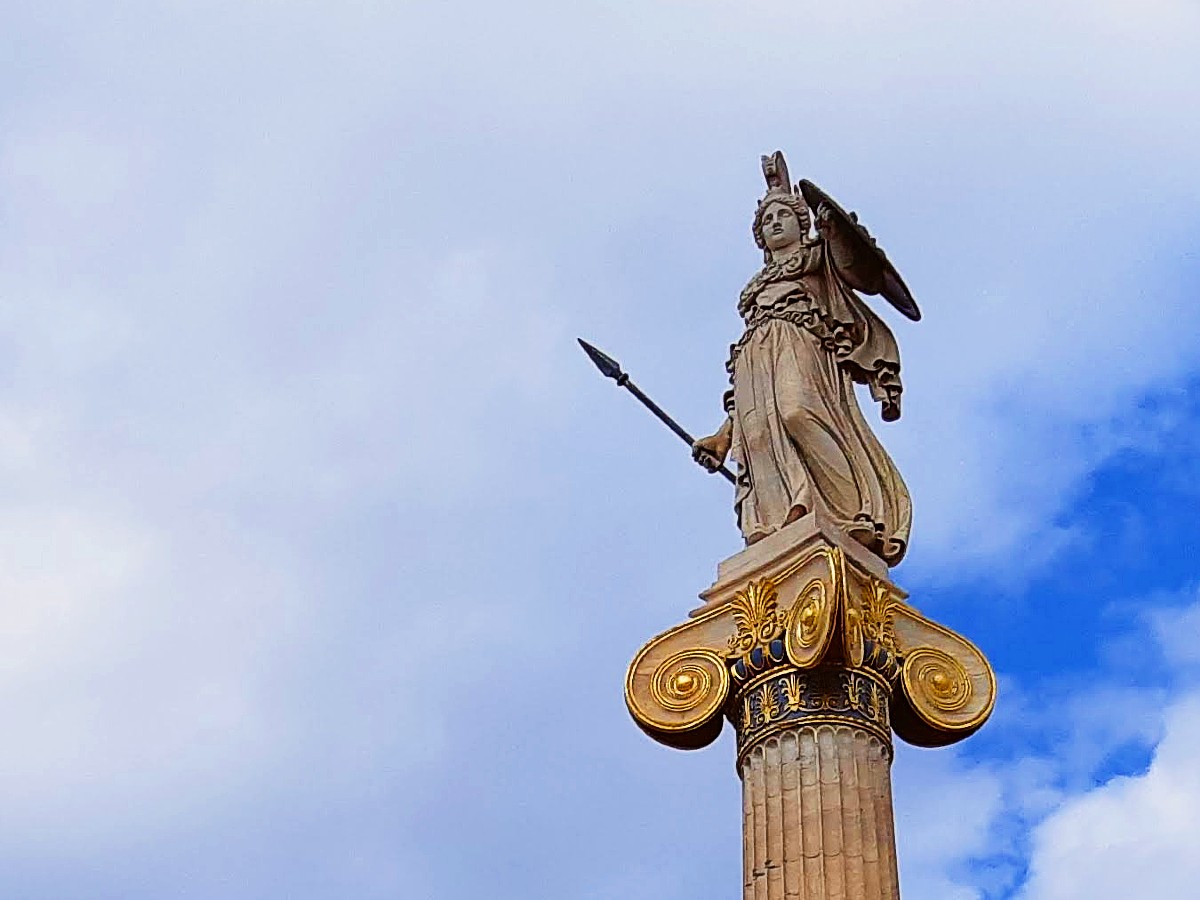
Athens, the oldest European capital city
Athens has been continuously inhabited for several millennia. There is evidence of human habitation as early as the Neolithic period, possibly earlier than 3,000 BC.
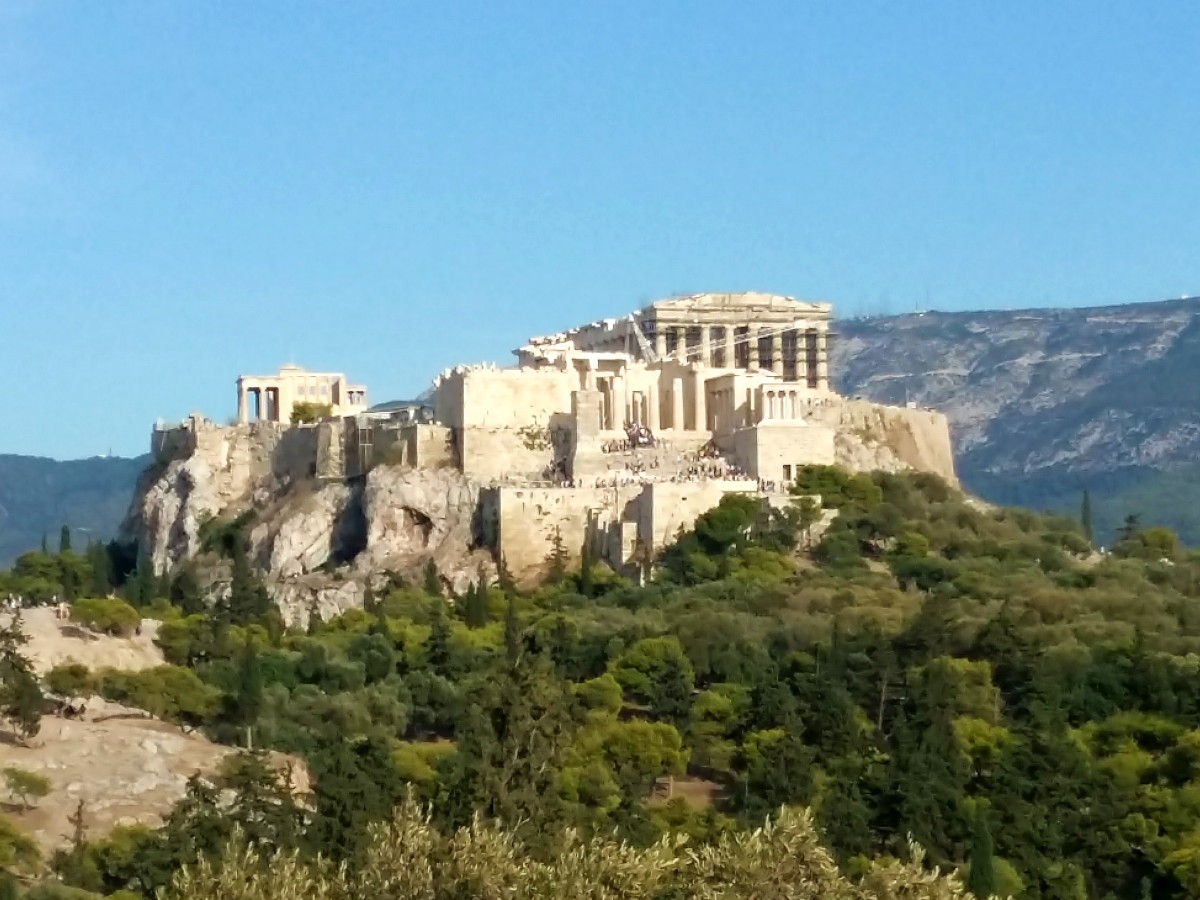
Athens was one of the most important city states of Ancient Greece. The silver mines at nearby Lavrion, the competent politicians like Cleisthenes and Pericles, and its privileged geographical position contributed to its power and overall wealth.
But how did Athens get its name? Let’s dive into the ancient legends and find the connection between the city, the Goddess Athena, the mythical King Cecrops and the Greek olive tree.
Athens was once called Cecropia
You may have never come across the name “Cecropia” before. This was the name of the city during the times of Cecrops the Athenian.
The mythical king was the son of Gaia and Uranus, the primordial gods who had given birth to the Titans. Cecrops was half man and half snake, and he ruled the city for 50 years. Based on his family tree, he would have been a distant uncle of Zeus.

During his reign, he introduced reading and writing, and set up several laws. Among others, he banned human sacrifices, he established the burial process, and launched the population census.
Perhaps the most famous feat of the serpent king is his involvement in the competition between Poseidon and Athena. Let’s look into this fascinating myth.
Athena and Poseidon
All around the ancient Greek world, there were temples dedicated to the twelve Olympian gods, and to other minor deities. Certain Greek cities had patron gods, who offered protection from external dangers and natural disasters.
As Athens was such a powerful city, it attracted the attention of two gods who both wanted to be its patrons. They were Athena, the Goddess of Wisdom, and Poseidon, the God of the Sea.

Each of them would have to offer gifts for the citizens of Athens. The god who provided the more precious gift, would become the patron god.
The competition was set up on the Acropolis. The remaining Gods of Olympus gathered around to be the judges, and Cecrops was appointed to be the witness.
Poseidon promises safety at sea
Poseidon competed first. He hit a rock with his trident and a spring of water came out. This was symbolic of his intention to protect Athenians against dangers at sea, and to increase the city’s naval power.
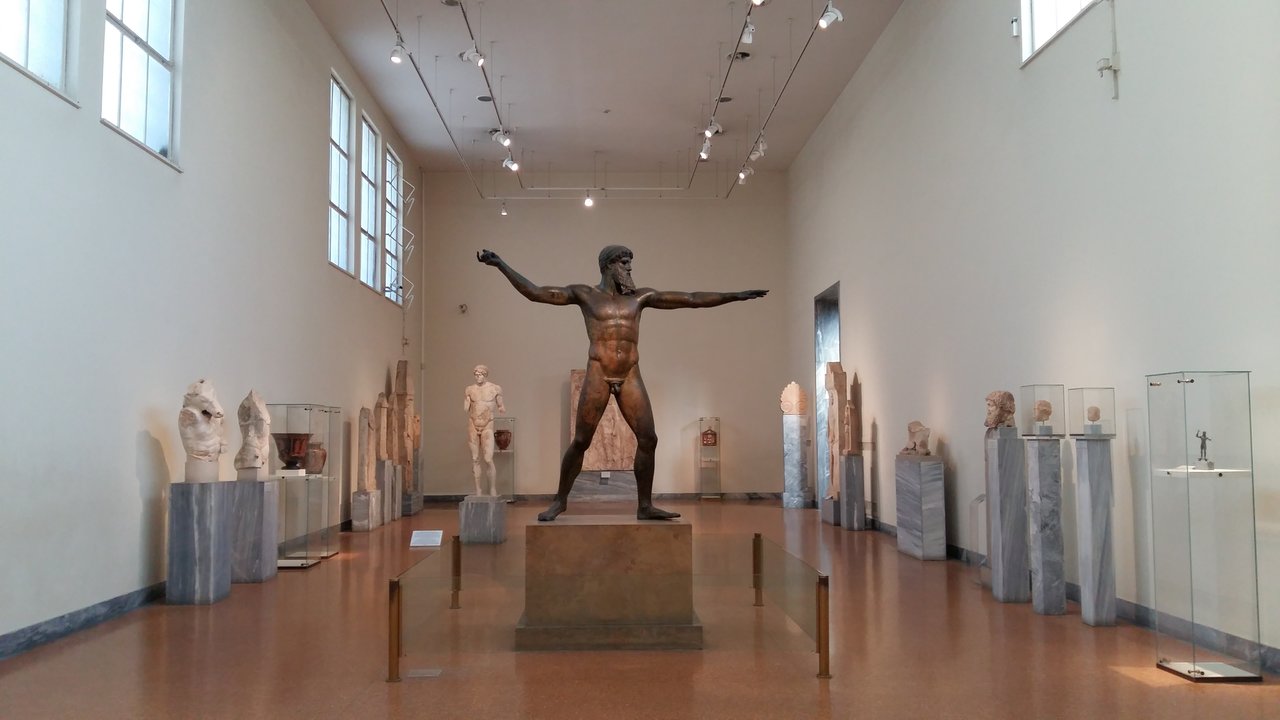
According to one version of the story, the people got excited, as the Greek city state was suffering from drought. It didn’t take them long to realize that the water was salty, hence unsuitable for drinking.
Athena plants the sacred olive tree
Next, it was Athena’s turn. The mighty goddess struck the ground with her spear, and an olive tree appeared. Its branches were instantly full of olives.
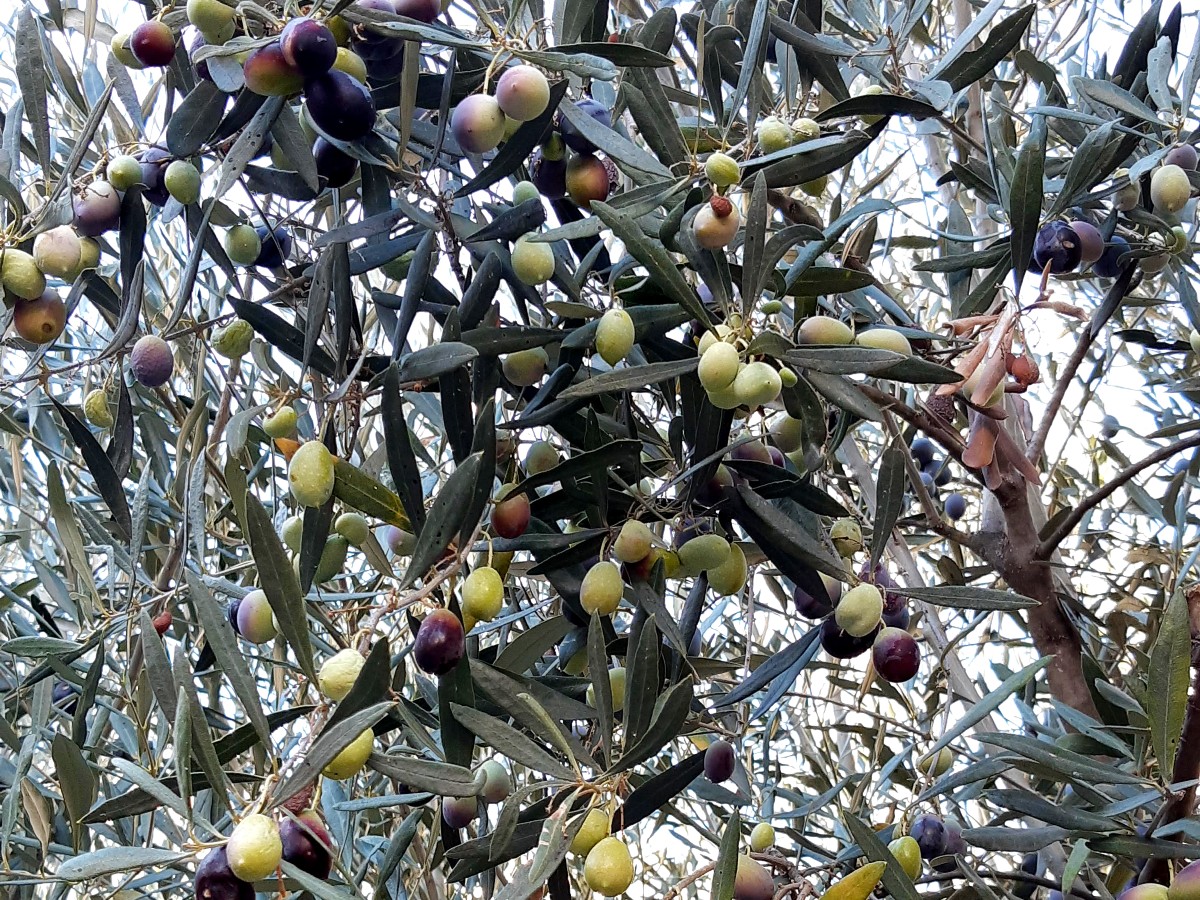
The Olympian gods and Cecrops examined the two gifts, and decided that the olive tree would be more useful. As a result, they agreed to offer the city to Goddess Athena.
Another narrative suggests that all male citizens of Athens voted for Poseidon’s gift, and all women chose the olive tree. As there were more women than men in the city, Athena won the contest.
From now on, the old Cecropia would take the name Athens. To honour the goddess who provided the invaluable gift, the Athenians built several temples for her up on the Acropolis. The most famous is the Parthenon, the city’s symbol. On its west pediment, there’s a sculpture depicting the contest between the two gods.
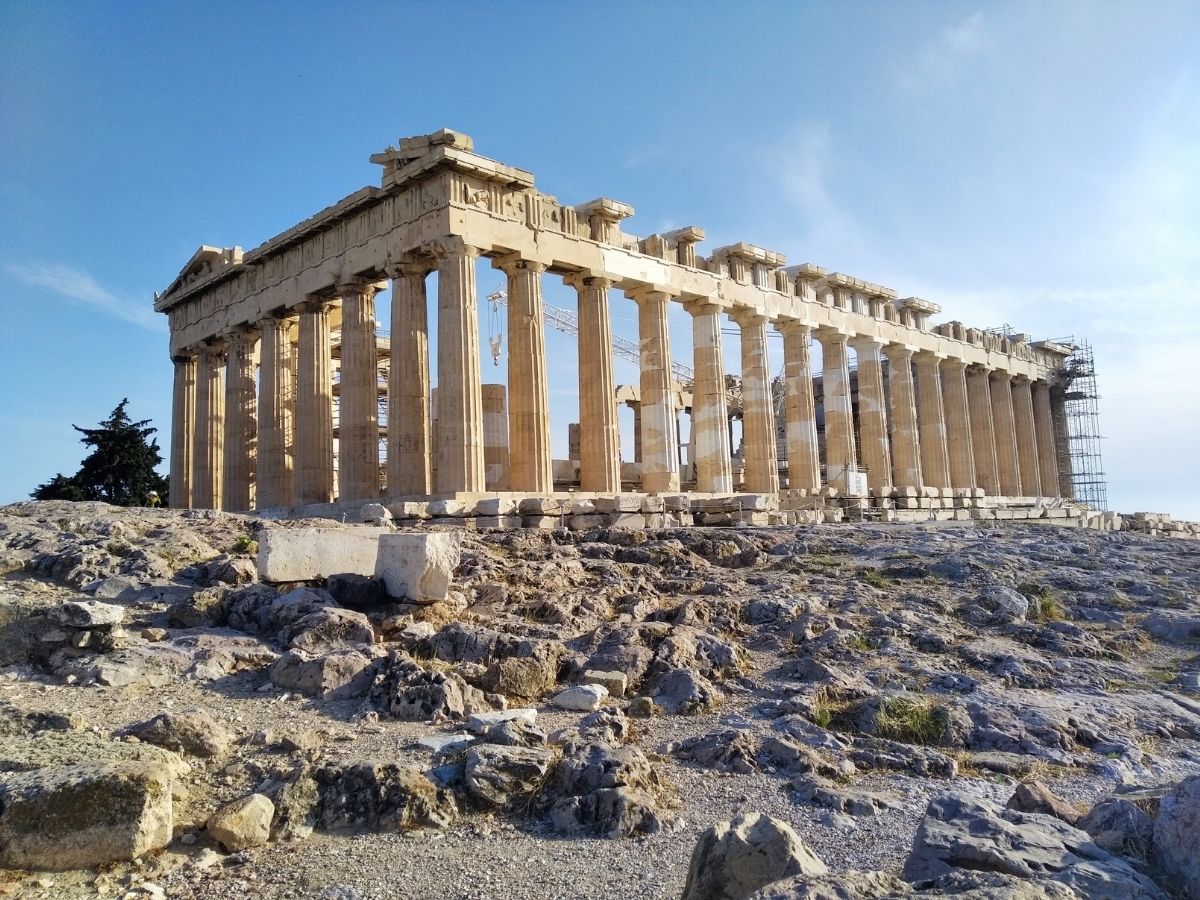
Plot twist: As you can imagine, the God of the Sea was furious, and threatened to destroy the city. To appease his anger, the Athenians built a beautiful temple for him, close to the coast. This is the Temple of Poseidon at Cape Sounion, which we can still visit today.
Why were olive trees so important?
So this is the myth behind the first olive tree ever planted in Greece. But what made it so important, and why did it affect a whole city?

Olive oil, which was called “liquid gold” by Homer, is a versatile ingredient. Ancient Greeks used it liberally as a food oil, and olives were a popular, nutritious snack. Any land with many olive trees had an advantage when it came to trade.
But that wasn’t all. The precious oil was included in certain medications, treatments and cosmetics. Moreover, it was used in certain religious rituals.
Finally, athletes who won in the Olympic Games, were awarded with an olive wreath. Being decorated with a part of the sacred tree was considered an utmost privilege. In addition, winners of the Panathenaic Games, were offered large amphoras filled with the valuable liquid.

The importance of the olive tree in modern Greece
As a Greek, I take olive oil for granted. It’s one of the most important ingredients in Greek food, and you will find it in most dishes.
Interestingly, we still use it in certain Orthodox Christian practices, like the baptism and christening. It’s also an important ingredient in many modern-day cosmetics.
If you ever visit the ancient land of Sparta, make sure you go to the Olive Museum. You will find an excellent overview of the importance of the olive tree, starting from Ancient Greece.
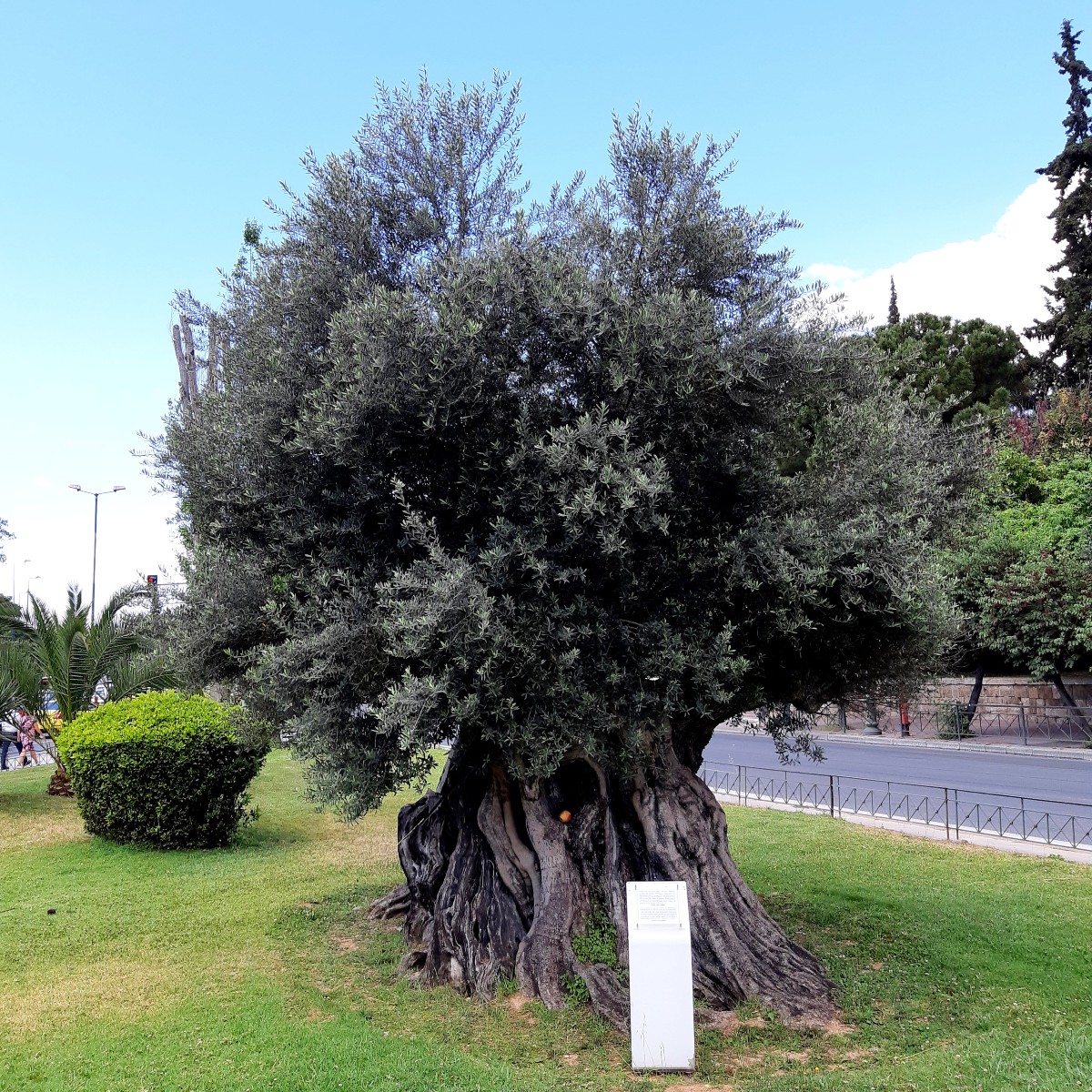
Today, you will see numerous olive groves all around Athens and Greece. Some of the trees are thousands of years old, like this one. It’s across the street from the National Gallery in the city center.
The original one, which was planted by Athena the goddess up on the Acropolis, doesn’t exist anymore. Another one was planted in its place, to remind Greeks of the ancient myth.

Maybe all those trees we can see today are descendants of Athena’s gift to the city!
And what does the name “Athens” mean?
So here is how Athens got its name. But what does the actual word mean?
Going back to Greek mythology, you may remember that Athena came out of the head of her father, Zeus. The myth suggests that she was born fully dressed, with her armour and shield.

According to Plato, Athena’s name might be connected to the Greek words God (theos) and mind / thought (noesis). After all, she was born out of the mind of a God… and she was the Goddess of Wisdom.
Today, there are more versions explaining the etymology of the name. You can read a couple here.
Today, Athens is still famous for the ancient temples dedicated to the patron goddess. Thousands of visitors come to see the Acropolis, and travel back in time, when gods and mythical kings ruled the city.
More guides about Ancient Greece
I hope you have enjoyed this article on how Athens got its name! If you are interested in Ancient Greece, you might like these other articles:
- Best Greek Mythology Movies
- Ancient theatres in Greece
- A 2-day Athens itinerary to explore the ancient sites
- The evil eye tradition in Greece
- Why visit Athens
Also, why not take a Greek mythology tour, where you will find out more about the ancient Greek gods and heroes!

Hi! I am Vanessa, an Athenian, and I love helping people discover more about Greece. Since I was a kid I’ve always been fascinated by Greek Mythology. Out of the 12 Olympians, Goddess Athena was my favourite. I find it absolutely intriguing that the citizens of Ancient Athens chose a female patron goddess!

So nice written and interesting. Thank you for this stories.
Very interesting and fascinating. What a beautiful county. Thank you Vanessa!